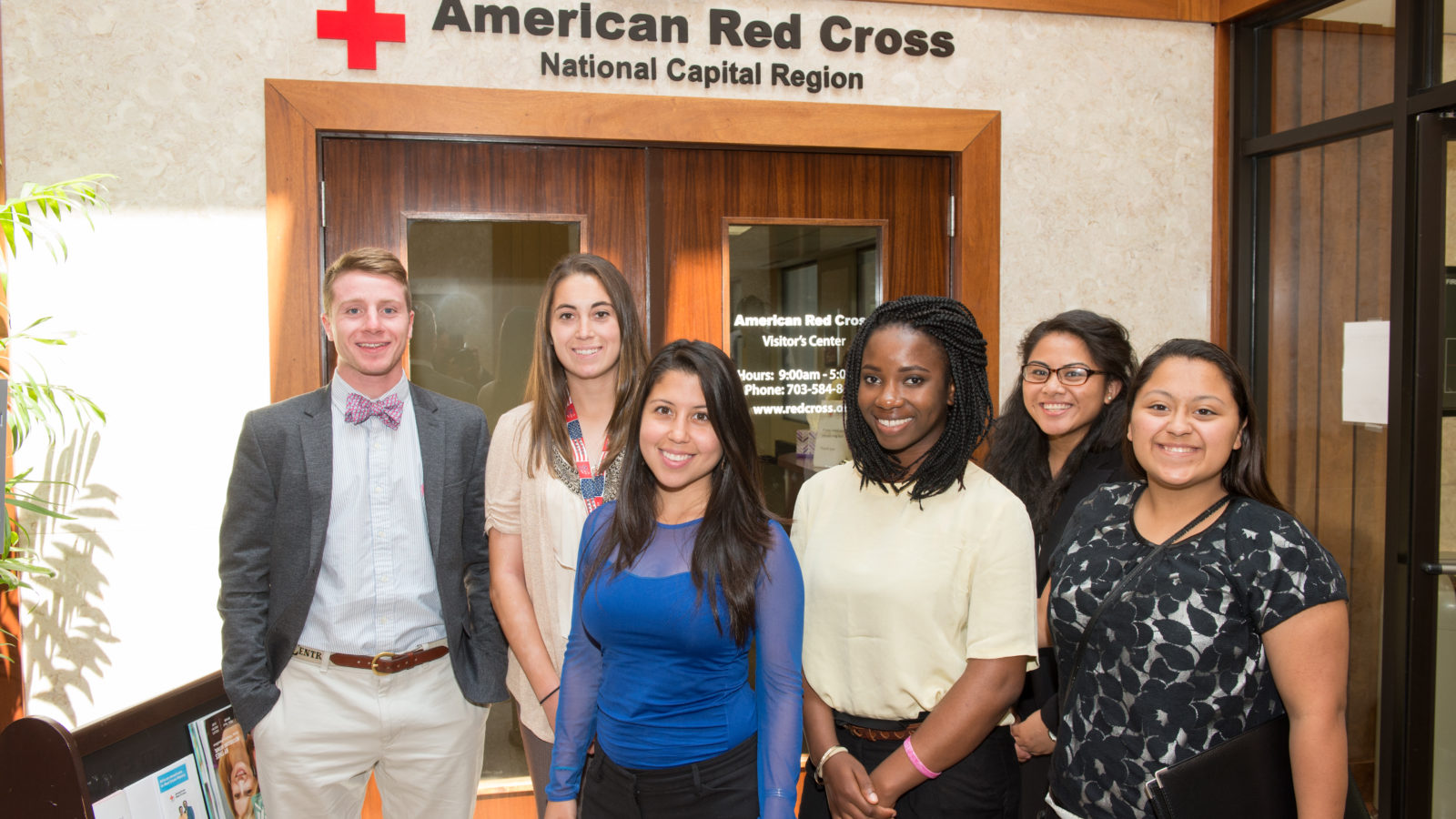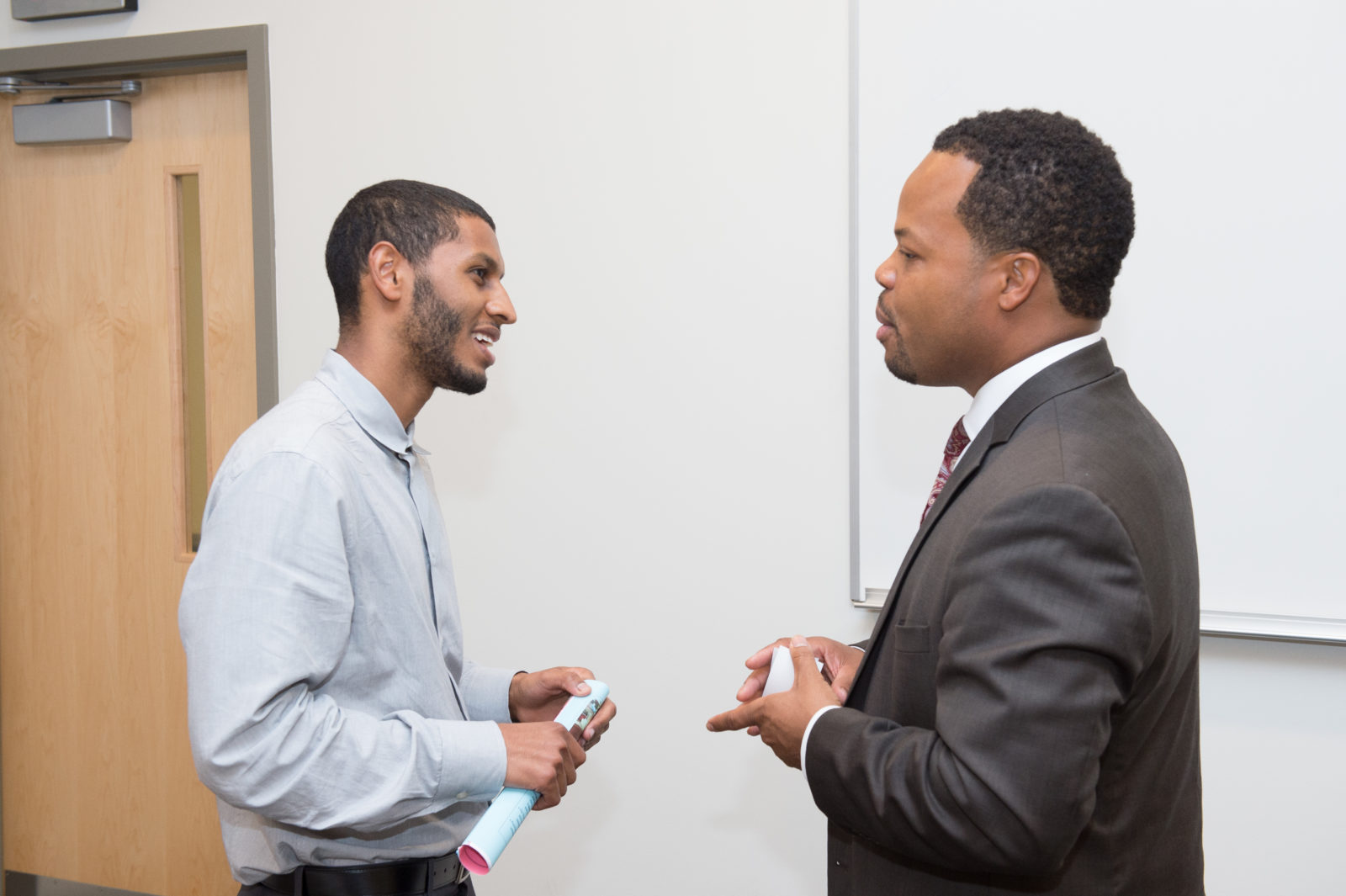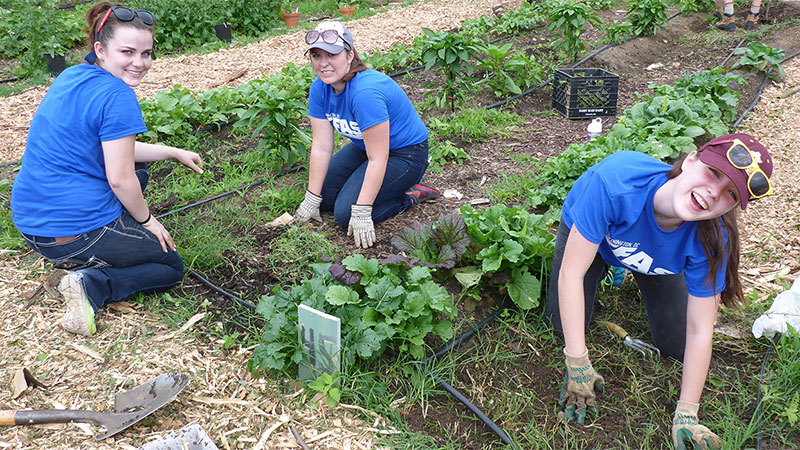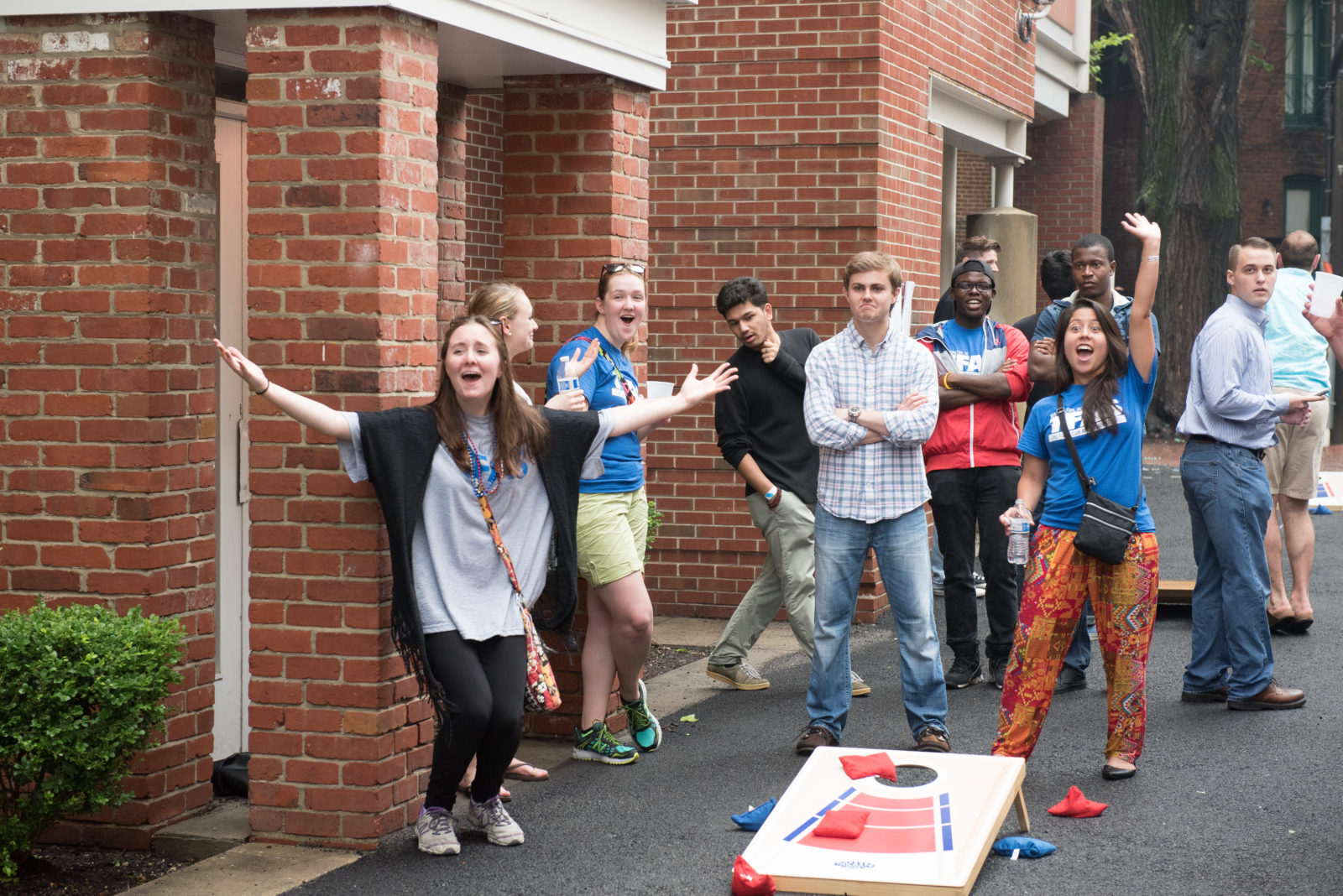
Washington D.C. is a world-known center of power. Home to our nation’s federal government, lawmaking and big-name firms, it’s easy to get lost in the awe of the historically political atmosphere of this town.
Unfortunately, D.C. is also an area of great need. There are more than 26,000 501(c)3 nonprofit organizations in the D.C., Maryland and Virginia areas. These organizations tackle world and local issues like hunger, homelessness, abuse, human trafficking and more.
TFAS students are only in D.C. for a summer or semester, but in that short time they have the chance to experience so many of the real issues facing the metro area through service. TFAS students give back to the D.C. community and volunteer at some of these nonprofit organizations.
All TFAS students can participate in a Service Saturday project where they spend a day with fellow students serving the D.C. community. Students visit places they might not get to see during their internships and daily tours around the city.
The Service Saturday sites primarily impact the areas of hunger and community clean up. Jay Schienman (IPVS 15) participated in a Committee to Restore Shepherd Parkway project during Service Saturday and had the chance to witness firsthand some of the poverty-stricken areas of Washington. Schienman was glad to visit an area of D.C. that doesn’t always get the spotlight in an intern’s daily schedule.

“I liked how it exposed some of my TFAS peers to real issues facing our country that most of them had never really experienced,” Schienman said.
He recalled visiting a local park where many of his fellow volunteers were shocked by the evidence of poverty and addiction.
“They were struggling to understand how this was happening, and I think it gave them greater perspective in the importance of philanthropy and helping others,” he said. “It sparked conversation with my colleagues on how there are greater things at play than simply what they saw.”
Schienman recently graduated from Southwestern University in Georgetown, Texas, and he interned with Everybody Wins! DC this summer. He was one of the 55 students who participated in the Institute on Philanthropy and Voluntary Service (IPVS), a program that specifically highlights service. IPVS students get a behind-the-scenes look at real-world nonprofit work in all aspects of their TFAS experience. Students take classes that teach how voluntary associations work in a free-market economy, hear guest lectures from nonprofit CEOs and fundraisers, participate in multiple service projects and learn professional development skills specific to the nonprofit sector.
Schienman also enjoyed his academic experience with TFAS. With the new TFAS course model he was able to enroll in classes specific to his institute, as well as other elective courses that suited his interests. Schienman was enrolled in Dr. Jason Brennan’s Political Economy of Nonprofits and Humanitarian Aid course and Dr. Gary Armstrong’s (ICPES 84) American Foreign Policy course. He says he learned new ideas in both classes that relate back to service.
In his economics course, Schienman enjoyed how Dr. Brennan created dilemmas to make him and his classmates think and apply coursework concepts.
“One of the key things that stood out to me was the allocation of resources and opportunity cost,” he said. “If you do one thing, you’re inherently not doing something else, and how to rationalize that in terms of resources that are not being dedicated elsewhere. Throughout my entire internship process I was constantly thinking about how the organization ran and where time and energy was dedicated.”
IPVS students also participate in a class grant-making project where they raise funds to support a local youth education-based nonprofit. Students are grouped into fundraising committees to support the project. One highlight of the IPVS class project is the cornhole tournament and raffle fundraisers that take place at the annual student and alumni barbecue.
Committee chair and IPVS student Bailey Herbstreit (IPVS 15) says her fundraising experience through the IPVS class project tied in with her entire summer experience and helped her understand how a nonprofits really work.

“It was cool to see the participation from the students and alumni at the barbecue and work with people in that type of setting,” Herbstreit said. “I was happy to see how successful it turned out after all of our hard work.”
Herbstreit is a rising sophomore at Arizona State University. This summer she interned at the YMCA in their development office. At her internship, she learned not all nonprofit work is direct service – there’s a lot more that goes into addressing a community’s needs than the outcome you see.
“At first I struggled with not seeing the direct service at my internship because I felt like I was in a more corporate setting,” Herbstreit said.
But eventually she came to realize how people working behind the scenes at nonprofits make a significant impact on their community. Herbstreit says this motivated her to see how someone can give back full time in a nonprofit career.
D.C.’s vibrant nonprofit sector not only provides ample opportunity for volunteering, it also makes for an excellent job field. TFAS volunteer Kara Johnson serves on the IPVS Board of Visitors, as a guest lecturer and as an internship supervisor. She has spent her entire professional career serving in the nonprofit sector and knows the true value of an internship at a nonprofit.
“I think you get a wider variety of experience when you intern for a nonprofit,” Johnson said. “Because nonprofits are almost always under-resourced, nonprofits are skilled at using volunteer labor. It’s always good for interns to see how an organization makes things work when they don’t necessarily have everything they need.”
In her years working with TFAS, Johnson has noticed there’s something special about TFAS interns who serve at her nonprofit the Network for Teaching Entrepreneurship.

“TFAS interns are committed to interning,” Johnson said. “They are committed to coming into work and doing what needs to be done. They’ve always been some of our top performers. I think that speaks the caliber of students TFAS accepts and to the preparation that goes into getting them ready to be in the office.”
Continuing with service this fall, Capital Semester students will participate in various projects throughout the semester. Their first project was spending an evening spent at DC Central Kitchen (DCCK) working with their evening meal preparation program. DCCK is a nonprofit food distribution service that incorporates local food systems and skills training for the unemployed. At DCCK, students had the chance to see how hunger impacts the D.C. community. They also saw how they can make an impact on this community while they “Live. Learn. Intern.” and serve in our nation’s capital.
This summer’s service project sites were:
- Bright Beginnings
- Capital Area Food Bank*
- Committee to Restore Shepherd Parkway*
- Common Good City Farm*
- DC Thrive
- Food and Friends*
- Martha’s Table
- Mentors Inc.
- Network for Teaching Entrepreneurship
- So Others Might Eat (SOME)*
- World Children’s Festival
* Denotes Service Saturday site

